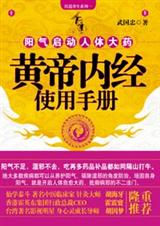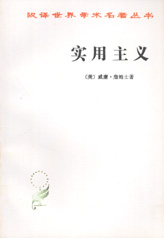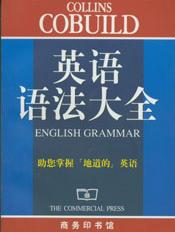牛津实用英语语法-第87部分
按键盘上方向键 ← 或 → 可快速上下翻页,按键盘上的 Enter 键可回到本书目录页,按键盘上方向键 ↑ 可回到本页顶部!
————未阅读完?加入书签已便下次继续阅读!
I must call at the library to give back this book.(to give this book back/to give it back)
我得去图书馆把这本书还了。
give in(intr) 屈服,退让,不再拒绝听从:
At first he wouldn’t let her drive the car but she was so persuasive thateventually he gave in.
起初他不肯让她开车,可是她这么能说,最终他还是答应了。
give out(tr)
(a) 口头宣称:
They gave out the names of the winners.(gave the names out/gave themout)
他们宣布了获胜者的名字。
(b)分发,分给:
The teacher gave out the books.(gave one/some to each pupil)
教师分发了书。
give out(intr)耗竭,用光(指供应品等):
The champagne gave out long before the end of the reception.
在招待会结束前很久,香槟酒就都喝完了。
His patience gave out and he slapped the child hard.
他再也忍耐不下去了,用力打了那孩子一巴掌。
give up(tr/intr) 放弃努力,停止做某事的试图:
I tried to climb the wall but after I had failed three times I gave up.(gaveup the attempt/gave the attempt up/gave it up)
我试图爬上那堵墙,但失败三次之后我放弃了。
A really determined person never gives up/never gives up trying.一个真正有决心的人绝不会放弃试一次的机会。
give up(tr) 放弃某种习惯、运动、学习、职业等:
Have you given up drinking whisky before breakfast?
你已经不在早餐之前喝威士忌了?
He gave up cigarettes.(gave them up)
他不吸烟了。
He tried to learn Greek but soon got tired of it and gave it up.
他曾想学希腊语,但不久就感到厌倦而放弃了。
give oneself up(宾语在up之前) 投降,自首,不再抗拒:
He gave himself up to despair.
他完全沉湎于绝望中。
He was cold and hungry after a week on the run so he gave himself up tothe police.
他上路潜逃一个星期后饥寒交迫,只得向警方自首了。
go
go ahead(intr)(继续)工作、前进,先走:
While she was away he went ahead with the work and got a lot done.
她不在的时候,他继续干活,干了不少工作。
You go ahead and I’ll follow;I’m not quite ready.
你先走一步,我随后就来;我还没完全准备好。
go away(intr) 离开,走开,别在这儿:
—Are you going away for your holiday?
—No,I’m staying at home.
—你假期出去吗?
—不,我呆在家里。
Please go away;I can’t work unless I am alone.
请你走开;有人在旁边我无法工作。
go back(intr) 回去,后退,撤退:
I’m never going back to that hotel.It is most unfortable.
我再也不回那家旅馆了。那儿太不舒服了。
go back on(tr) 收回或不履行(诺言):
He went back on his promise to tell nobody about this.
他答应这件事对谁也不讲,可是他食言了。
go down(intr)
(a) 得到赞同并被接受(常指一个主意、想法):
I suggested that she should look for a job but this suggestion did not godown at all well.
我建议她去找个工作,可是这个主意她根本听不进。
(b)减少,减弱(指风、浪、重量、价格等):
During her illness her weight went down from 50 kilos to 40.
在病中她体重由50公斤下降到40公斤。
The wind went down and the sea became quite calm.
风力减弱,海浪平息了。
go for(tr) 进攻,袭击:
The cat went for the dog and chased him out of the hall.
那猫向狗发起进攻,把它赶出了门厅。
go in for(tr)对……特别感兴趣,练习做某事或使用某物,参加(某项比赛等):
This restaurant goes in for vegetarian dishes.
这家饭馆供应素菜。
She plays a lot of golf and goes in for all the petitions.
她常打高尔夫球,参加所有的赛事。
go into(tr) 深入调查,研究,侦查:
‘We shall have to go into this very carefully,’said the detective.
“我们得非常仔细地对此进行侦查,”侦探说。
go off(intr)
(a) 爆炸(指军火或焰火),开火(指枪炮,尤指偶然走火):
As he was cleaning his gun it went off and killed him.
他擦枪时,枪走火了,把他打死了。
(b)获得成功(指一项社会或社交活动):
The party went off very well.
晚会开得很成功。(人人都玩得很高兴。)
(c)开始一次旅行,上路,离开:
He went off in a great hurry.
他非常匆忙地走了。
go on(intr)继续赶路:
Go on till you e to the orossroads.
一直走到十字路口的地方。
go on(intr),go on with(tr),go on+动名词 继续做某事:
Please go on playing;I like it.
请继续演奏下去;我喜欢这曲调。
Go on with the treatment.It is doing you good.
你要继续进行这种疗法。它对你是有效的。
go on+动词不定式 接着干(另一件事):
He began by describing the route and went on to tell us what the tripwould probably cost.
他开始是描述这条路线,后来又告诉我们这次旅行可能要花多少钱。
go out(intr)
(a) 出家门到外面去,外出:
She is always indoors;she doesn’t go out enough.
她老是窝在家里;她外出得不够。
(b) 参加社会交活动,出去进行文娱活动等:
She is very pretty and goes out a lot.
她长得很漂亮,常常到外头玩。
(c) 消逝,不再流行(指时装服饰):
Crinolines went out about the middle of the last century.
有衬架支撑的女裙在上世纪中叶已不流行了。
(d) 熄灭(指灯、火等):
The light went out and we were left in the dark.
灯光灭了,剩下我们摸黑呆着。
go over(tr) 仔细地检查,研究学习,重新诵记:
He went over the plans again and discovered two very serious mistakes.
他又把计划过了一遍,发现了两个非常严重的错误。
go round(intr)
(a) 足够供(一定数目的人)用:
Will there be enough wine to go round?
葡萄酒够大家喝的吗?
(b)到(某人)家去,过去:
I said that I’d go round and see her during the weekend.
我说过我要在周末过去看看她。(到她家里去)
go through(tr)仔细检查(常指多种东西;与look through意思相近,但具有更彻底的意思):
There is a mistake somewhere;we’ll have to go through the accounts andsee where it is.
不知哪儿有个错误;我们得再把帐目彻底过一下,看错在哪儿。
The police went through their files to see if they could find any finger-prints to match those that they had found on the handle of the weapon.
警方仔细检查了他们的档案,看是否能找到同在凶器柄上发现的指纹相符的指纹。
go through(tr)承受,受苦,受罪:
No one knows what I went through while I was waiting for the verdict.
没有人能知道我在静候判决时所承受的痛苦。
go through with(tr)完成,使进行至终结(尤指经历某种反对或困难):
He went through with his plan although all his friends advised him toabandon it.
尽管他的朋友们都建议他放弃,他还是把计划进行到底。
go up(intr)
(a) 上升(指物价):
The price of strawberries went up towards the end of the season.
草莓将要下市时,价格上涨了。
(b)起火(并被焚毁),爆炸(指整个的建筑物、船只等):
When the fire reached the cargo of chemicals the whole ship went up.
火焰延伸到运载的化学品时,全船都爆炸了。
Someone dropped a cigarette end into a can of petrol and the whole garagewent up in flames.
有人把烟头扔在一罐汽油里了,整个车库都陷于火海。
go without(tr)不要某物而将就着过日子(但只指物;gowithout a person只有字面的意义,即意指“不等某人来到就动身离去”)
grow
grow out of(tr)长大了一些后不再继续保持幼时的(坏)习惯:
He used to tell a lot of lies as a young boy but he grew out of that lateron.
他还是个小男孩时,常常说谎,可是后来大了就不那样了。
grow up(intr) 成为成年人,长大成人:
I’m going to be a pop star when I grow up,’said the boy.
“我长大了要当流行歌星,”那男孩子说。
hand
hand down(tr)授予或传下去(指传统/信息/所有物等):
This legend has been handed down from father to son.
这一传说代代相传。
hand in(tr)上交,交出(给什么人常不必提及,因为听话人已经知道了):
I handed in my resignation.
我把辞职书交上去了。
Someone handed this parcel in yesterday.(handed it in)
昨天有人把这小包交来了。
hand out(tr)分发:
He was standing at the door of the theatre handing out leaflets.(handingleaflets out/handing them out)
他站在剧院门口,分发小册子。
hand over(tr/intr)将权力或职责交给某人,移交:
The outgoing Minister handed over his department to his successor.(handed his department over/handed it over)
即将离任的部长把他的部门移交给了后任。
hand round(tr)给在场的每一个人,给在场的大家轮流看:
The hostess handed round coffee and cakes.(handed them round).
女主人给大家依次递来咖啡和点心。
hang
hang about/around(tr/intr)(在附近)逗留不去:
He hung about/around the entrance all day,hoping for a chance to speakto the director.
他整天等在入口,巴望着有机会同导演/主任谈一下。
hang back(intr)不愿采取行动,退缩:
Everyone approved of the scheme but when we asked for volunteers theyall hung back.
人人都赞同这个计划,但是我们征求志愿者时,他们都退缩了。
hang on to(tr)抓住不放,不肯交出,不放手(俗语化的用法):
I’d hang on to that old coat if I were you.It might be useful.
如果我是你,我就不放手那件






